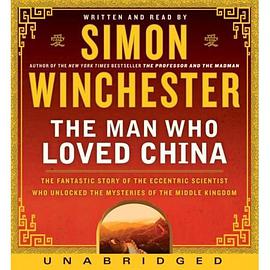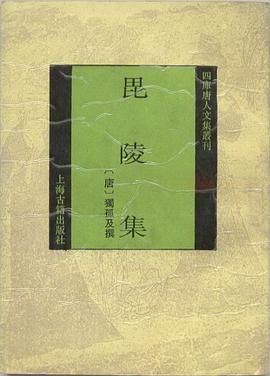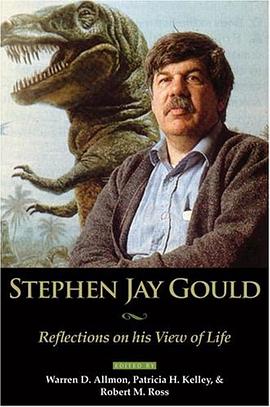
具体描述
From Publishers Weekly
Starred Review. Simon Winchester's reading, like his clear, concise, graceful writing, reflects his endless fascination with his subject—the British scientist Joseph Needham—and with his subject's subject: Chinese scientists' every invention and contribution to every field of science over five centuries (before the West began to think of such things as the printing press and gunpowder). Winchester reads rapidly, but his diction is so precise (yet never stuffy) that not a word is lost. The vocal warmth and charm mirror his endless awe of Needham's lifetime work on his multivolume magnum opus on Chinese scientific thought. Winchester's tone reveals his delight with Needham's love affairs, his unconventional marriage and relation to his lifelong inamorata who first inspired his love of Chinese language, people and thought. As with every book he's written and narrated, Winchester makes abstruse subjects available and fascinating for every reader and listener. A Harper hardcover (Reviews, Mar. 10). (May)
Copyright © Reed Business Information, a division of Reed Elsevier Inc. All rights reserved.
From The Washington Post
Reviewed by Judith Shapiro
The great Sinologist Joseph Needham (1900-1995) is a legend for his Science and Civilization in China, an encyclopedic account of China's achievements in science and technology. But it is the famous "Needham question," which asks why the country failed to industrialize when Europe did, despite its prior achievements in printing, explosives, navigation, hydraulics, ceramics and statecraft, that may revive his legacy and compel re-reading of his 24-volume masterwork. As China transforms into an industrial powerhouse, we may ask the inverse question: Why is China now booming after centuries of relative stagnation, and on what traditions will it draw?
In The Man Who Loved China, Simon Winchester, author of The Professor and the Madman, builds on his success in writing about eccentric British intellectuals. Needham makes a great subject. A Cambridge University polymath who made his youthful mark as a biochemist, he was also a nudist, a performer of English folk dances involving ankle bells and sticks, an accordion player and an active Communist. His happy marriage to chemist Dorothy Needham survived his lifelong passion for his mistress, Lu Gwei-djen, the biochemist who taught him Chinese and collaborated with him on his master project. Their "peculiarly organized love life" was so cordial that the three lived on the same Cambridge street and often took tea together. Above all, Needham was an indefatigable researcher, whether he was stranded by a broken truck in northwest China's desert or working long hours in his Cambridge study so crammed with materials that assistants were sometimes chosen for their small size.
Needham's career shifted dramatically in 1943, when his government tapped him to establish a Sino-British cultural and scientific exchange behind the front lines of Japanese-occupied China. From Chongqing, a base in the interior to which the Nationalist government had fled, Needham provided struggling Chinese scientists with laboratory equipment and textbooks while pursuing his research on Chinese inventions.
Needham's notable side trips included one to the Dunhuang caves in Western China, where the woodblock Diamond Sutra (868 A.D.), the world's first printed book, had been discovered. Along the way, he stopped at Dujiangyan, the great diversion dam project, built around 250 B.C., which was recently in the news because it lies near the epicenter of the horrific Sichuan earthquake. (Miraculously, it seems to have survived.) Needham's journey to southeastern Fujian province was cut short when the Japanese moved in, bombing bridges as he fled back to Chongqing. His intellectual curiosity and energy turned every hair's-breadth wartime escape into an opportunity to gather the materials that would inform his life's work. He kept impeccable notes and shipped out antique manuscripts by the crate.
On his return to Cambridge in 1948 after two years at UNESCO, Needham began cataloguing and writing up his findings. When Science and Civilization in China started to appear in 1954, it was intended to fill two volumes. But the project expanded -- first to the consternation, later to the pride of Cambridge University Press -- to reach 18 volumes by his death in 1995. It continues to grow today as his collaborators complete work on topics such as ceramics and metallurgy.
The volumes, some of which were co-authored with Lu Gwei-djen and other Chinese researchers, cover mechanical engineering, paper and printing, alchemy, chemistry and military technology. The classic Civil Engineering and Nautics details inventions designed to harness nature; the Chinese were masters at building bridges, walls, canals and boats, and also designed "anchors, moorings, dock and lights, towing and tracking, caulking, hull-sheathing and pumps, diving and pearling, the ram, armor plating, grappling irons, and the tactics of firing naval projectiles." Other Chinese innovations of interest to Needham ranged from wheelbarrows to fishing reels, "the umbrella, the spinning wheel, the kite . . . playing cards, tuned drums, fine porcelain, perfumed toilet paper, the game of chess."
During the McCarthy years, the staunchly pro-communist Needham was barred from the United States and shunned in England, in part because he supported charges that U.S. forces had dropped plague-infested rodents on northeast China during the Korean War. As head of an investigative commission of international scientists, he interviewed Chinese people who reported outbreaks of vermin and disease, which convinced him of a biological warfare campaign. Winchester reports that Needham was hoodwinked. If, however, Needham was correct, that puts a different slant on his disgrace, which in any event was temporary. As the political climate shifted and his books collected accolades, he was made master of Caius College at Cambridge, where he enjoyed decades of honors and respect. Two years after his wife's death at 92 from Alzheimer's, he married Lu Gwei-djen in a union of elderly soul mates; she passed away shortly thereafter.
Despite Winchester's extraordinary narrative skills, he gets some details wrong. The assertion that China became "more stable" after the Japanese defeat in 1945 is a surprising clunker given his masterful depiction of war-torn China. (A footnote mentions the civil war between Nationalists and Communists.) More troubling is the depiction of the Yangtze River as the only unchanged feature of modern Chongqing. As the author of an excellent book on the Yangtze, Winchester should have known better than to ignore the devastating changes wrought by the Three Gorges Dam, which has profoundly altered the flow of that great river.
The importance of Needham's work lies not only in the mega-projects for which China is most famous but also in the small-scale technologies that he lovingly detailed. If China follows the model of the industrialized West (and if we ourselves persist on our current path), the exploitation of fossil fuels, minerals, forests and other resources may push the Earth past the tipping point. In retelling Needham's story, Winchester focuses on the inventiveness of the Chinese people, whose creativity once surpassed that of all other civilizations. If this resourcefulness can be renewed and harnessed in the service of sustainability, then perhaps there is hope not only for China but for the planet.
Copyright 2008, The Washington Post. All Rights Reserved.
作者简介
目录信息
读后感
评分
评分
评分
评分
用户评价
从这本书的开篇,我就被一种难以言喻的魅力所吸引,它仿佛拥有魔力,让我无法自拔地沉浸其中。作者的文字带着一种独特的韵律感,读起来让人感到非常舒服,仿佛在聆听一首优美的乐章。他对故事的掌控力也非常出色,节奏张弛有度,既有扣人心弦的紧张时刻,也有舒缓细腻的情感描写。我尤其欣赏他对于人物情感的描绘,那种细腻而又真实的情感表达,让我深深地被这些人物所打动。这本书不仅仅是一个故事,更是一种情感的体验,它让我感受到了爱、失落、希望、绝望,以及在这些情感交织中的成长。我喜欢在阅读时,去感受作者的情绪,去体会他想要传达的那些复杂而又微妙的情感。它就像一面镜子,映照出我内心深处的某些角落,让我更加了解自己。
评分当我合上这本书的那一刻,我感到一种莫名的怅然若失,仿佛刚刚结束了一段漫长的旅程,而我却不想就这样与这一切告别。作者的叙事技巧令人惊叹,他能够将看似分散的线索巧妙地串联起来,形成一个完整而又引人入胜的故事。我尤其欣赏他对人物情感的细腻描绘,那些深沉的爱恋,那些隐秘的忧伤,那些坚定不移的信念,都被刻画得入木三分,让我不禁为之动容。这本书不仅仅是一个关于“爱”的故事,它更是一个关于成长,关于勇气,关于如何在逆境中保持希望的故事。作者用他的笔触,展现了人类精神的韧性,以及在追求真理和幸福的过程中所付出的努力和代价。我喜欢在阅读时,去感受作者想要传达的那种对生命的热情,对世界的好奇,对未来的憧憬。它就像一次心灵的洗礼,让我更加珍惜当下,更加勇敢地去面对生活中的一切挑战。
评分我一直对那些能够跨越时间和空间的界限,讲述关于“爱”的故事的书籍情有独钟,而这本书正是这样一本让我爱不释手的作品。作者的叙事方式非常独特,他能够将宏大的历史背景与个体命运巧妙地融合,让读者在感受历史的洪流的同时,也能体会到个体在时代变迁中的挣扎与坚守。我特别喜欢他对于人物心理的刻画,那种深沉而又细腻的描写,让我仿佛能够走进人物的内心世界,去感受他们的喜怒哀乐。这本书让我对“爱”有了更深的理解,它不仅仅是男女之间的情爱,更是一种超越个体、超越时空的深情。作者在字里行间流露出对生命的热爱,对生活的热情,对文化的尊重,这些都深深地感染了我。它就像一位心灵的导师,用他的故事和智慧,引导我去探索生命的意义,去追寻内心的平静。
评分这本书的封面设计就足够吸引人了,那种带有复古气息的插画风格,以及书名中“爱中国”这个词,瞬间就勾起了我对未知故事的好奇心。拿到手时,纸张的触感也相当舒适,不是那种过于光滑的现代印刷纸,而是带有一种温润的质感,仿佛能触摸到作者笔下那个时代的温度。我迫不及待地翻开了第一页,就被那种沉浸式的叙事节奏所吸引。作者在字里行间营造出一种独特的氛围,让人感觉自己仿佛置身于那个遥远的时代,亲历着书中的种种故事。每一个字句都经过精心打磨,没有一丝多余的修饰,却又蕴含着丰富的情感和深邃的意境。我喜欢作者在描绘人物时,那种不动声色的细腻,不刻意去渲染,但人物的性格、情感,甚至细微的表情,都在不经意间跃然纸上。这种“少即是多”的写作手法,反而让人物更加立体和真实,也让读者有了更多想象的空间。我尤其期待接下来会遇到怎样的人物,会发生怎样动人的故事,这本书的开篇,无疑已经为我打开了一扇通往奇妙世界的大门,让我迫不及待地想深入其中,去探索那些隐藏在文字背后的无限可能。
评分这本书带给我的感受是难以用简单的词语来形容的,它触动了我内心深处最柔软的部分。作者的叙事方式非常独特,他能够将宏大的历史背景与个体命运巧妙地结合,让读者在感受历史的洪流的同时,也能体会到个体在时代变迁中的挣扎与坚守。我尤其喜欢他对于人物心理的刻画,那种深沉而又细腻的描写,让我仿佛能够走进人物的内心世界,去感受他们的喜怒哀乐。这本书让我对“爱”有了更深的理解,它不仅仅是男女之间的情爱,更是一种超越个体、超越时空的深情。作者在字里行间流露出对生命的热爱,对生活的热情,对文化的尊重,这些都深深地感染了我。我常常在阅读时,会停下来,静静地思考作者所传达的理念,去感悟那些隐藏在文字背后的深意。它就像一位心灵的导师,用他的故事和智慧,引导我去探索生命的意义,去追寻内心的平静。
评分我一直认为,好的文学作品应该能够引发读者的共鸣,能够触动读者的灵魂,而这本书无疑做到了这一点。作者在写作上展现出了非凡的才华,他能够用最简洁的语言,表达出最深刻的情感。我喜欢他对于人物命运的安排,那种既在意料之外,又在情理之中的转折,总是能让我感到惊喜。这本书让我看到了人性的光辉,也让我看到了人性的黑暗,它展现了一个真实而又复杂的世界。作者在讲述故事的同时,也融入了他对历史、对文化、对人生的深刻思考,这些思考并没有生硬地灌输给读者,而是巧妙地融入到故事之中,让读者在不知不觉中受到启发。我喜欢在阅读时,去体会作者的用意,去理解他想要传达的信息。它不仅仅是一本小说,更是一部关于人生、关于情感、关于文化的哲学寓言,每一次阅读都能让我收获新的感悟。
评分我一直对那些能够跨越文化界限,讲述不同文明之间交流与碰撞的故事很感兴趣,而这本书正是这样一本引人入胜的作品。它不仅仅是关于一个人的故事,更是关于一种文化、一种精神的传承。作者在研究和写作上都表现出了极大的热情和严谨,他对历史细节的把握,对文化背景的还原,都让我感到惊叹。我常常在阅读时,会情不自禁地去查阅相关的资料,去了解更多关于那个时代、那个地方的故事。这本书就像一座桥梁,连接了我与遥远时空的过去,让我得以窥见那些早已远去的岁月。作者在处理不同文化之间的差异时,展现出了极大的尊重和理解,他没有简单地褒贬,而是试图去展现其内在的逻辑和价值。这让我对那些曾经的误解和隔阂有了更深的理解,也让我更加珍视不同文化之间的交流与互鉴。它不仅是一本读物,更是一种学习和成长的机会。
评分这本书最让我着迷的地方在于其丰富的层次感和深刻的内涵。作者并非仅仅在讲述一个故事,他更是在构建一个世界,一个充满历史厚重感和文化底蕴的世界。每一个场景的细节描绘都充满了匠心,仿佛作者亲自走过那个时代,用他的眼睛去记录,用他的心去感受。人物的塑造更是立体而饱满,他们不再是纸片上的符号,而是有血有肉、有爱有恨的鲜活个体,他们的选择,他们的困境,他们的成长,都牵动着我的心弦。我喜欢在阅读中去思考作者所设置的每一个情节,去揣摩人物的每一个表情,去理解那些隐藏在字缝里的深意。这本书让我看到了知识的力量,也看到了文化的力量,更看到了人类情感的普适性。它不只是提供了一个故事,更提供了一种思考方式,一种看待世界和人生的全新视角,让我受益匪浅。
评分读这本书的过程,就像是在品一杯陈年的美酒,越品越有滋味。作者的文字功底深厚,遣词造句都恰到好处,既有诗歌般的韵律,又不失散文的流畅。他善于运用比喻和象征,将抽象的概念具象化,让读者更容易理解和体会。我特别喜欢他在描绘自然风光时所用的笔触,那种宁静而又壮阔的美,仿佛能洗涤心灵的尘埃。而当笔触转向人物内心时,又变得细腻而 sensitive,能够捕捉到最细微的情感波动。这本书的主题非常深刻,它探讨了人性中的许多方面,比如爱、孤独、希望、绝望等等。作者并没有给出明确的答案,而是留给读者思考的空间,这也是我喜欢这本书的原因之一。它引发了我很多思考,让我重新审视自己的人生,重新认识这个世界。每一次翻开这本书,我都能从中获得新的感悟,新的启发。它就像一位循循善诱的长者,用智慧和经验与我对话,引导我走向更广阔的精神世界。
评分我一直在寻找一本能够让我暂时逃离现实生活,沉浸到另一个世界的书,而这本书恰好满足了我的愿望。它的故事线索虽然复杂,但却被作者巧妙地编织在一起,形成了一幅宏大的画卷。我尤其欣赏作者在处理细节上的功力,每一个场景的描写都栩栩如生,仿佛我能闻到空气中的味道,听到远方的声音。人物的塑造更是精雕细琢,他们的动机、他们的挣扎,他们的爱恨情仇,都被刻画得入木三分。我发现自己会不由自主地被这些人物所吸引,甚至对他们的命运产生深深的挂念。作者并没有刻意去制造戏剧性的冲突,而是通过人物之间微妙的互动和心理活动来推动故事的发展,这种“润物细无声”的叙事方式,反而更能触动人心。我喜欢在阅读的过程中,去猜测人物下一步的行动,去理解他们的选择,去感受他们的喜怒哀乐。这本书让我看到了人性的复杂和多样,也让我对生活有了更深刻的理解。它不仅仅是一个故事,更像是一次心灵的旅程,一次对自我和世界的探索。
评分 评分 评分 评分 评分相关图书
本站所有内容均为互联网搜索引擎提供的公开搜索信息,本站不存储任何数据与内容,任何内容与数据均与本站无关,如有需要请联系相关搜索引擎包括但不限于百度,google,bing,sogou 等
© 2026 qciss.net All Rights Reserved. 小哈图书下载中心 版权所有




















